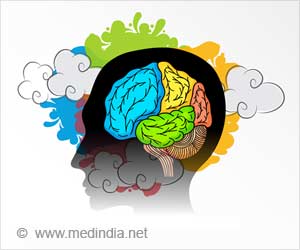Scientists at the University of Geneva in Switzerland said that it is now possible to know the different emotions-for instance joy, anger, or grief,by studying the pattern of activity in the brain.
The researchers claim that theirs is the first study to show that emotional information is represented by distinct spatial signatures in the brain that can be generalized across speakers."Correct interpretation of emotion in the voice is highly important - especially in a modern environment where visual emotional signals are often not available," for instance, when people talk on the phone, said Thomas Ethofer of the university.
"We demonstrated that the spatial pattern of activity within the brain area that processes human voices contains information about the expressed emotion," he added.
The researchers presented those participating in the study with pseudowords spoken in five ways-with anger, sadness, relief, joy, or no emotion-and simultaneously scanned ther brains with functional magnetic resonance imaging (fMRI).
They then analysed the overall spatial pattern of activity in the auditory cortex by using a method called multivariate pattern analysis.
"While conventional methods analyse each point in the brain separately, we looked at the overall pattern. Consider the following analogy: If you have a puzzle consisting of black and white pieces, it is hard to say whether they belong to a picture of a zebra or a checkerboard if you look at each piece in isolation, but it becomes relatively easy if you put the pieces together," Ethofer said.
Advertisement
Ethofer insists that the new findings have not only yielded fresh insight into this most critical of social skills, but that they might also help unravel where it goes wrong in those with various psychiatric disorders.
Advertisement
"Future research might apply a similar approach as ours to clarify whether these deficits are paralleled by activity changes blurring emotions at the level of auditory cortex, or are due to disrupted patterns within frontal regions reflecting biased interpretation of emotional signals," they added.
The study has been reported in the journal Current Biology.
Source-ANI
SAV










